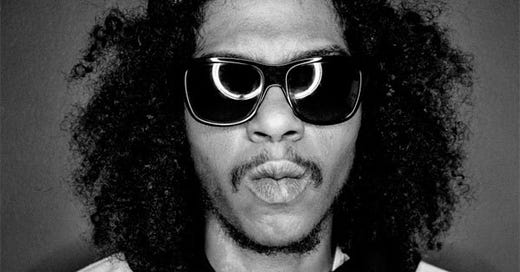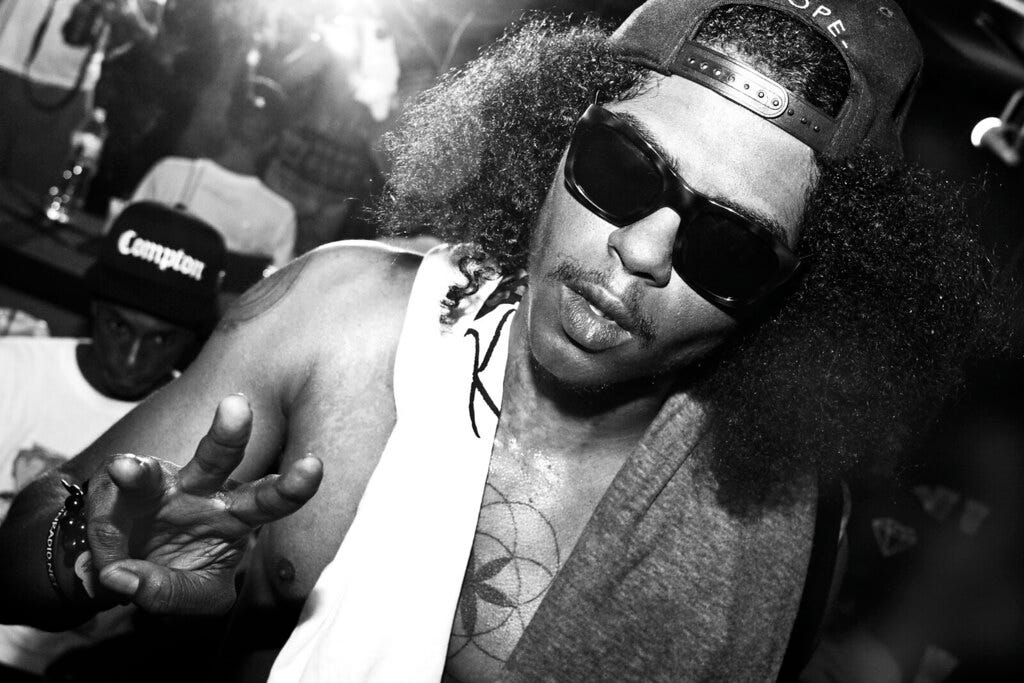"Control System" is an influential and thought-provoking album by the American rapper Ab-Soul, released in 2012. This project is a significant piece within the realm of hip-hop, known for its intricate lyricism, diverse production, and the artist's introspective exploration of various social and personal themes.
One of the standout features of "Control System" is Ab-Soul's lyricism. The rapper showcases a remarkable command of language, employing intricate wordplay and clever metaphors throughout the album. His verses are densely packed with meaning, requiring listeners to engage actively with the music to fully appreciate the depth of his messages.
The album opens with the track "Soulo Ho3," where Ab-Soul sets the tone for what's to come. His opening lines may seem provocative at first, but they serve as a deliberate attention-grabber, inviting listeners to look beyond the surface and delve into the complexities of his thoughts. Throughout the album, Ab-Soul's verses touch on a wide array of topics, from existential ponderings to social issues, showcasing a rare intellectualism within the genre.
Ab-Soul's exploration of spirituality is a recurring theme of "Control System." In tracks like "Illuminate" and "Pineal Gland," he delves into esoteric subjects, referencing the pineal gland as a gateway to higher consciousness. These tracks not only showcase his interest in metaphysical concepts but also challenge conventional notions within hip-hop, where materialism often takes center stage.
The album's production is equally diverse, with beats that range from soulful and jazzy to gritty and experimental. The track "Bohemian Grove" features a haunting piano melody, creating a somber atmosphere that complements Ab-Soul's reflective lyrics. On the other hand, "Terrorist Threats" incorporates a more aggressive and energetic production style, featuring fellow Black Hippy members Schoolboy Q and Jay Rock. This diversity in sound keeps the listening experience dynamic and prevents the album from becoming monotonous.
Ab-Soul's collaborations on "Control System" contribute significantly to its impact. The song "Terrorist Threats" is a standout example of synergy within the Black Hippy collective, with each member delivering a distinctive verse that adds layers to the track. Additionally, the inclusion of guest artists like Jhene Aiko and Danny Brown adds a further dimension to the album, bringing in different perspectives and vocal styles that complement Ab-Soul's own.
Thematically, "Control System" delves into the challenges and contradictions of modern life. Ab-Soul confronts societal issues, such as racial inequality and systemic oppression, in tracks like "A Rebellion" and "Double Standards." His verses serve as a critique of the status quo, encouraging listeners to question the established norms and seek a deeper understanding of the world around them.
One of the album's most memorable tracks is "The Book of Soul," a poignant and autobiographical piece where Ab-Soul reflects on the loss of his longtime girlfriend, Alori Joh. The raw emotion in his lyrics is palpable as he grapples with grief and regrets. This track stands as a testament to Ab-Soul's willingness to lay bare his vulnerabilities, offering listeners an intimate glimpse into his personal struggles.
"Control System" also engages with the concept of control on a broader scale. The title suggests a scrutiny of power dynamics and the manipulation individuals and communities may experience. Whether it's the control exerted by external forces or the internal struggle for self-mastery, Ab-Soul navigates these themes with a keen awareness and a critical eye.
In conclusion, Ab-Soul's "Control System" is a masterful exploration of lyricism, production, and thematic depth within the hip-hop genre. Its lasting impact lies in its ability to challenge the listener intellectually while still delivering a musically engaging experience. Through intricate wordplay, diverse production, and a willingness to tackle complex themes, Ab-Soul cements his place as a unique voice in hip-hop, and "Control System" stands as a testament to the genre's potential for introspection and social commentary.








